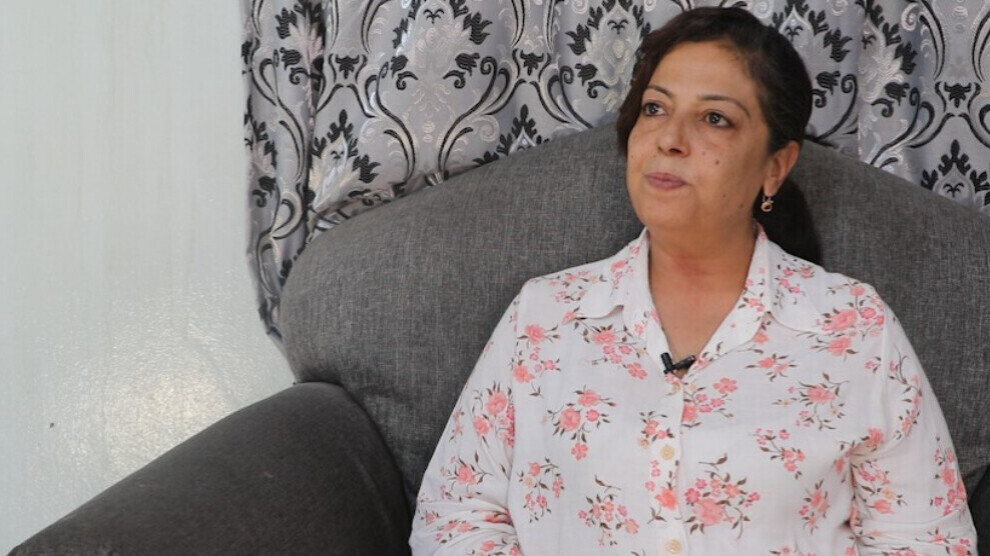'The Syrian people need a decentralized system'
Regarding the announcement of the election schedule in Syria, Fehime Hemo said, “Today, the Syrian people need a pluralistic, decentralized system where democracy, justice, and equality prevail."

SILVA MANLA OSMAN
Aleppo – The parliamentary elections announced in Syria have not been widely accepted by society due to instability and the absence of a democratic foundation. Fehime Hemo, a member of the Aleppo Kongra Star Coordination, reacted strongly, noting that the elections do not include all components of society.
The Syrian people tied their hopes for a free and democratic Syria to the overthrow of the Baath regime, but the question of how the rights of all components will be guaranteed remains unanswered. The public is critical of the policies of the jihadist Hay’at Tahrir al-Sham, which came to the temporary Syrian administration and does not recognize democracy or the will of the Syrian people in any way, and of the announcement of elections within this context.
"The Change in Administration Was a Disappointment"
Fehime Hemo, describing the disappointment of Syrian society with the regime led by the jihadist Hay’at Tahrir al-Sham, said, “Syrian society longed for a democratic system after the overthrow of the Assad regime, but the hopes of society were dashed from the very first moments of the jihadist HTS coming to the temporary administration. HTS’s statements regarding women that they should not violate ‘the natural disposition created by Allah, their educational roles within the family, and that their boundaries should not extend beyond the kitchen threshold’ revealed where Syria is headed.”
They Cannot Represent the Will of Women
Recalling the massacres targeting the Druze community in Suwayda, Fehime Hemo said, “The Druze community was subjected to horrific massacres, in addition to the abduction and rape of women.” Hemo emphasized that in response to these attacks, women’s resistance emerged, stating that those committing the massacres cannot represent the will of women.
'They Will Not Gain Legitimacy from the Syrian People'
Fehime Hemo said, “How can elections be held without laying the groundwork? Without stability and a real system that represents and unites the will of society, these elections cannot be fair.” She added that the elections will be limited to a single group trying to gain power within the current government. Hemo explained, “Since the president is the decision-maker in the commission committee, the committee, with the approval of the government that supports him, decides who the president will nominate and excludes other peoples. Therefore, they will not gain legitimacy from the Syrian people.”
'Women Will Raise Their Voices Against All Oppressive Policies'
“Arabs, Kurds, Armenians, Circassians, Druze, and Christians have lived together on these lands since ancient times, and history bears witness to this,” said Fehime Hemo, highlighting the need to develop a governance system that reflects Syria’s diversity. Regarding the exclusion of women from the election process, Hemo stated, “Syrian women will not remain silent about what is happening in Syria and will raise their voices against all policies that oppress them. They are no longer as before; thanks to the experience gained from the Democratic Nation Project implemented in North and East Syria, they have gained will, decision-making power, and positions. During the years of the revolution, they took successful steps to ensure 50% participation in all areas, which is also included in the social contract of North and East Syria.”
Finally, Fehime Hemo said, “Today, the Syrian people need a pluralistic, decentralized system where democracy, justice, and equality prevail. We are concerned with building a new decentralized republic that protects the rights of Syrians, especially women, and we bear the responsibility for it.”
